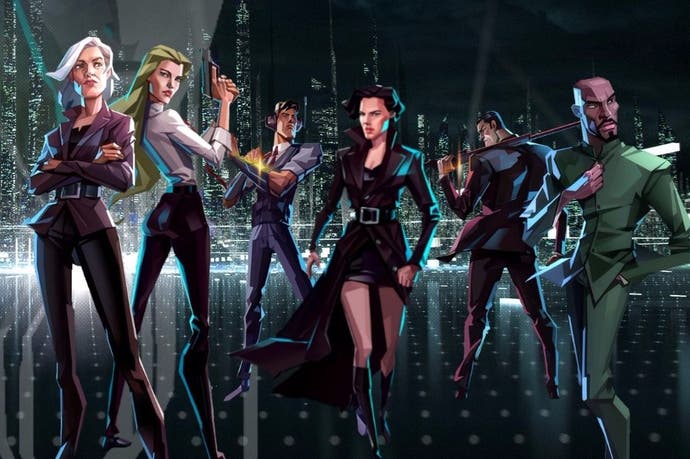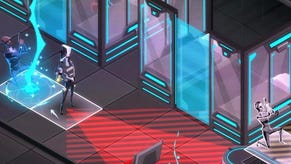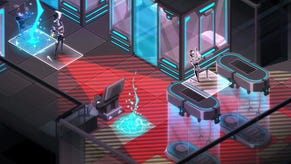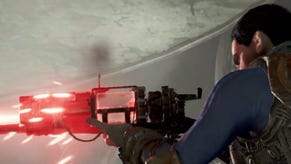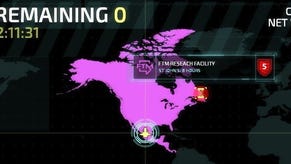Games of 2015 no. 7: Invisible, Inc.
Now you don't.
My two favourite games of this year are very different - almost opposed - but have one important thing in common. The Witcher 3 is huge, opulent, authored, with simple gameplay working in the service of rich storylines and a bustling world. Invisible, Inc. is compact, efficient, procedurally generated, with a basic plot framing stories that emerge naturally from an exquisitely engineered ruleset. Both games, though, impress with their coherence: their total dedication to selling their fantasy and to avoiding the smallest detail that might break their spell. Strut like a sexy, magic monster hunter; commit daring heists with a team of neo-noir cyber-spies. Who wouldn't want to?
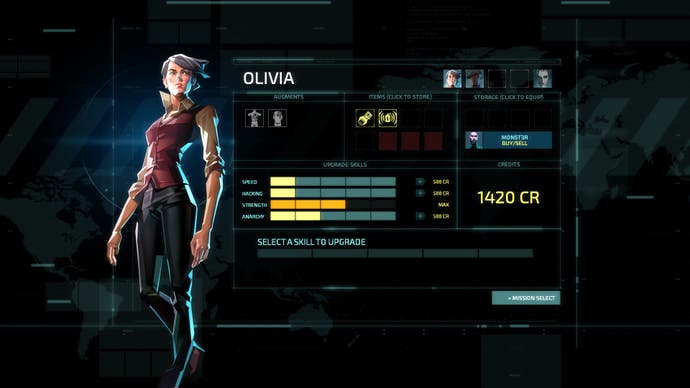
A turn-based stealth game by the obscenely talented Canadian indie studio Klei - who made Don't Starve and Mark of the Ninja - Invisible, Inc. could steal Metal Gear Solid's "tactical espionage action" tagline without Snake even noticing. It fits it like a glove. Militarised corporations are taking over the world, and you must use a team of cybernetic agents - plus a powerful hacking AI - to liberate money, gear, upgrades and captives from their installations until you're sufficiently well equipped to take on their dark conspiracy.
Visually, Invisible, Inc. has an economical kind of elan: characters are crisply animated flat cartoons, moving through diagrammatic, isometric maps. I'd say you need to look beyond this plain surface to see the game's true depth, but you don't, because it's clear to see. Tapping keys flicks you between three views - normal, tactical and hacking - that describe this clockwork world precisely in units of distance and action, of sight lines, cooldowns, electrical power and firewall defences. Thanks to a clear tutorial and the well judged escalation of the campaign, the systems are easy enough to pick up, but there are quite a few of them, and their interaction is complex and deep.
It is an extraordinarily well designed game, so much so that it bears serious comparison with genre greats like XCOM and Advance Wars. Its systems, instead of sprawling outward as in, say, Civilization, are bound together in a cat's cradle of interdependence that draws tighter the deeper you go into the game. And the balance is breathtaking. I don't want to call it 'perfect', because that would imply a game that exists in a state of harmony, rather than one that lives on a knife-edge. Invisible, Inc.'s keynote is tension, and everything is orchestrated to keep you close to the edge of disaster, taking just the right amount of risk. If you play it aggressively, you lose. If you play it conservatively, you lose as well, because there's an alarm tracker that advances with each turn and gradually ratchets up the level of security and number of guards. You need to employ just the right mix of daring and cunning, planning and improvisation.
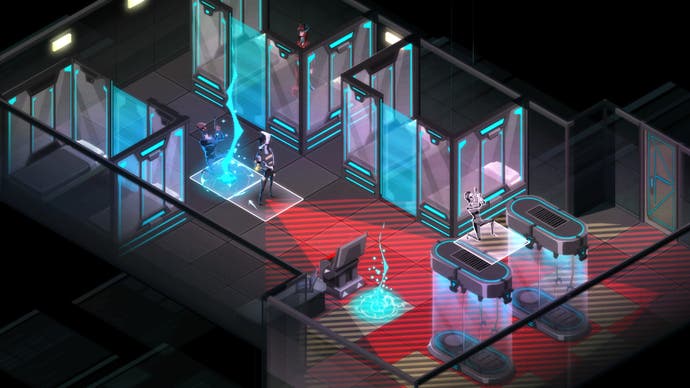
If I could give a new player just one tip, it's this: remember to always close the doors behind you, so as to block the sight lines of patrolling guards. That says it all about Invisible, Inc. This is a game that knows the drama inherent in a simple, practical detail, the potential for tactical accident it creates, and the extent to which just thinking about doors can put you in the shoes of a super-spy. In The Witcher 3, CD Projekt's writers described a great adventure in the lines of the earthy script and the windblown environmental art. In Invisible, Inc., your adventures are written, fittingly for a game about hacking, in lines of code: the algorithm that draws the level maps, the boons and restrictions granted by every gadget or cybernetic implant, the asymmetric balance of rule against rule. If you're looking for the purest achievement in the art of game design in 2015, look no further.
